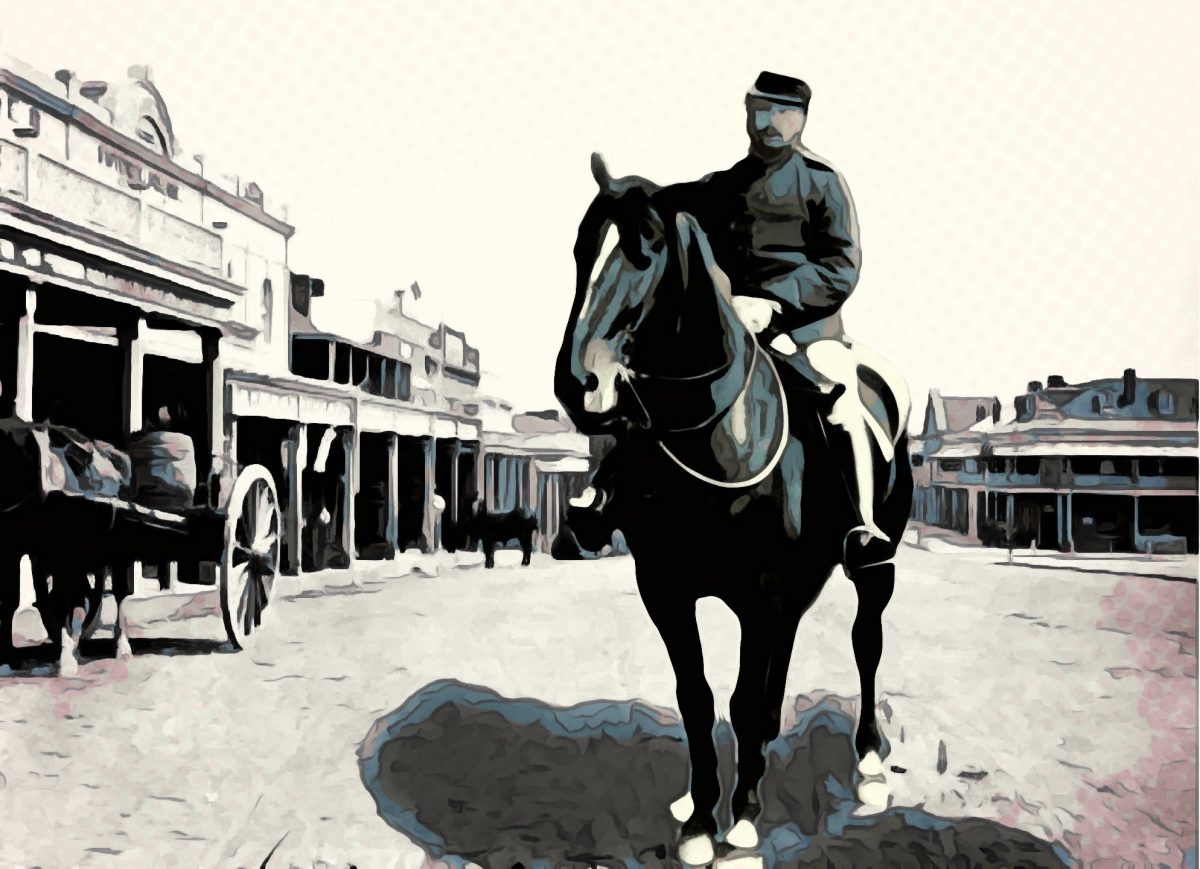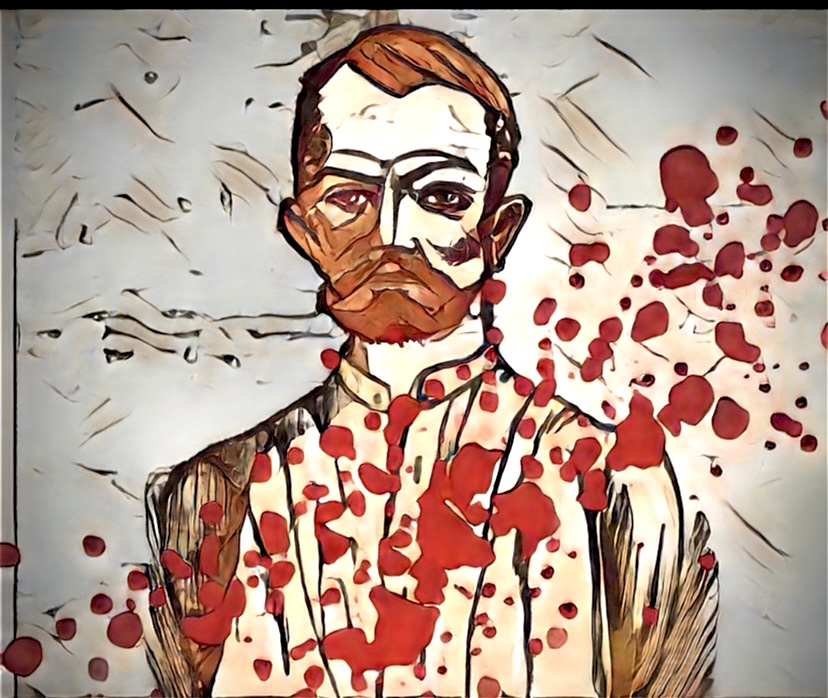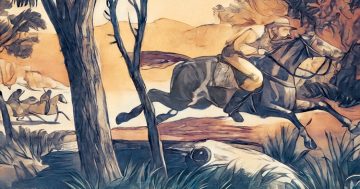
Over three decades with the NSW Police, Henry Teague Dixon was involved in some of the wildest moments of the Riverina’s history. Photo: Chris Roe.
Warning – This story includes details of murder and attempted suicide.
In June of 1916 the Wagga Advertiser sat down with retiring Police Inspector Henry Teague Dixon to reflect on some of the most “sensational crimes” he had witnessed throughout three decades in the Riverina.
Young constable Dixon was in his early 20s when he was stationed to the bustling railway camp at Bomen across the river from Wagga Wagga.
The North Wagga Station at Bomen was the original terminus for the Southern Railway when it opened in 1878 and was home to almost 1000 navvies (labourers) and just two constables to keep them in line.
On one occasion after a long day investigating the theft of some jewelry, the two young troopers stopped into the Black Swan Hotel for a “refresher”.
As they headed to the bar one particular patron became uneasy and made a sudden bolt for the door.
“The two constables were taken back somewhat. However, making for their horses, they followed in pursuit,” the Advertiser reported.
“The pursued made for some very high thistles on the river bank, and dived into them.”
Dixon dismounted and headed into the weeds while his partner kept watch from the saddle.
“Dixon was guided by moving thistles, and coming on his man suddenly he was met with a pistol at his breast, the holder pulling the trigger, which failed to explode the charge.”
The surprised trooper tackled the man and took him into custody and later examined the pistol. The pinfire cartridge showed a mark where the hammer had struck the pin but fortunately for Dixon it had misfired.
Dixon was known to be an excellent horseman and his favourite charger also gained a reputation for its speed and stamina.
In 1889 when 20-year-old drover Thomas Reilly murdered his employer Christian Epple on the Wagga Common, it was Senior Constable Dixon who chased him down with guns blazing.
After shooting Epple in his tent, Riley had headed on a pub crawl stopping at hotels in north and south Wagga before heading southeast towards Tarcutta.
Dixon and two other troopers headed in pursuit along the Tarcutta Road towards Alfredtown and caught sight of the fugitive mounted on a “handsome chesnut” near Book Book.
The chase took them through bogs and over fences and fallen trees, and after his colleagues fell behind, Dixon managed to close the gap and fired several shots at the young drover before he surrendered.

Detail from a drawing published around the time of suspected serial killer Albert Schmidt’s execution. Composite: Chris Roe.
The following year, Dixon was once again on the trail of a rogue killer as the “Wagga murderer” Albert Schmidt attempted to dispose of the decapitated body of his mate John Taylor.
According to Schmidt’s confession, the pair had been drinking at Alfredtown and got into a fight over his ability to pilot a wagon on the ride towards Lake Albert.
Things turned violent, Schmidt killed his mate with a tomahawk and was spotted by a group of laborers trying to bury the body.
Stashing the corpse in the back of the wagon, Schmidt rode back through town, along the main street and headed north over the Murrumbidgee.
When the report reached Dixon, he and another trooper followed the blood trail through town and caught up with the killer the following day between Old Junee and Temora.
After exhuming Taylor’s headless body and seating Schmidt in the wagon, Dixon took the reins and they began the journey back to Wagga.
Unfortunately, they had failed to properly search the killer and he made two separate unsuccessful suicide attempts before they reached the gaol.
Hanged for the murder in November 1890, Schmidt was also implicated in a second case involving murder and dismemberment and was in possession of items belonging to five other missing persons.
Also included in his list of “stirring” recollections was the breaking up of an infamous gang of cattle thieves in Gundagai who had attempted to dispose of the evidence by burning a herd of cows alive in the town’s gaol.
Dixon led the search for a pair of Aboriginal police trackers who fled Victoria for their native Queensland, embarking on a killing spree along the way.
At the interview’s conclusion, the well respected policeman was recognised for his “devotion to his duty which had at one time earned the marked enmity of a then leading politician, whom he prosecuted in the execution of his duty”.
Former Inspector of Police Henry Dixon died at his daughter’s home in Wagga in November 1943 at the ripe old age of 86.








